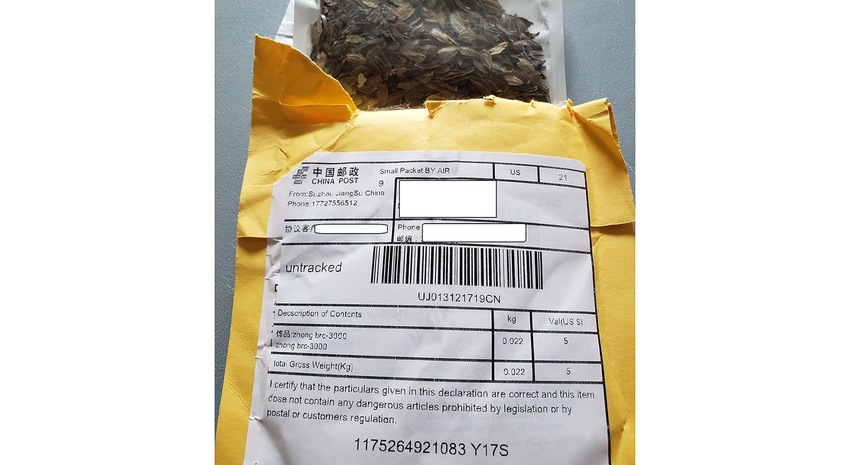Seed packets appear to be ornamental, fruit and vegetable, herb or weed species.

The U.S. Department of Agriculture’s Animal & Plant Health Inspection Service (APHIS) said it has identified 14 different species so far in the unsolicited seed packets recently sent to residents in several states. The agency is encouraging anyone who receives unsolicited package of seeds to mail them to the closest location listed here.
Osama El-Lissy, deputy administrator of plant protection and quarantine for APHIS, relayed that some of the seeds have been identified as mustard, cabbage, hibiscus, roses, morning glories and a variety of herbs.
“We are working to quickly collect and test as many seeds as possible to determine whether these packets present a threat to U.S. agriculture or the environment,” APHIS noted online. “As we collect the seed packages, we are routing them to APHIS botanists, who are examining the seeds to determine their species. Depending on the species and the potential risk it poses to U.S. agriculture, APHIS may test the seeds for pathogens that can cause plant diseases.”
Based on preliminary analyses of the seed samples already collected, APHIS said all of the seed packets appear to be a mix of ornamental, fruit and vegetable, herb and weed species.
At this point, USDA said it has not identified any link to agroterrorism but said the situation is “evolving.” Still, the agency said it is working closely with federal authorities to ensure that it evaluates every possibility.
Other countries, including Canada, Australia and European Union member nations, have also reported receiving unsolicited seed packages.
Mailing seed packets
APHIS provide the following instruction for mailing the seed packets:
Place the unopened seed packet and any packaging, including the mailing label, in a mailing envelope. If the seed packets are open, first place the seeds and their packaging into a zipper-top bag, seal it, and then place everything in a mailing envelope.
Include your name, address and phone number so a state or federal agricultural official can contact you for additional information, if needed.
In some cases, you may also submit your information online, and instructions are available online if that is an option in your state.
If you are unable to mail the package, please contact the APHIS plant health director for your state to arrange a no-contact pickup or determine a convenient drop-off location.
“It is important that USDA collect as many seeds as possible to determine if they contain anything that could be of concern to U.S. agriculture or the environment,” USDA said.
About the Author(s)
You May Also Like



.png?width=300&auto=webp&quality=80&disable=upscale)

